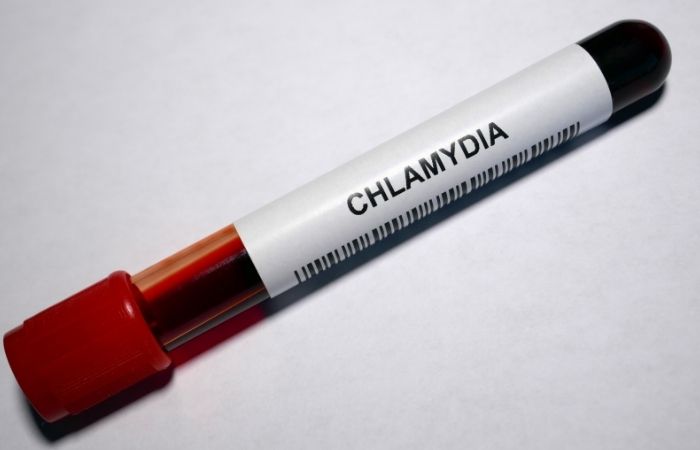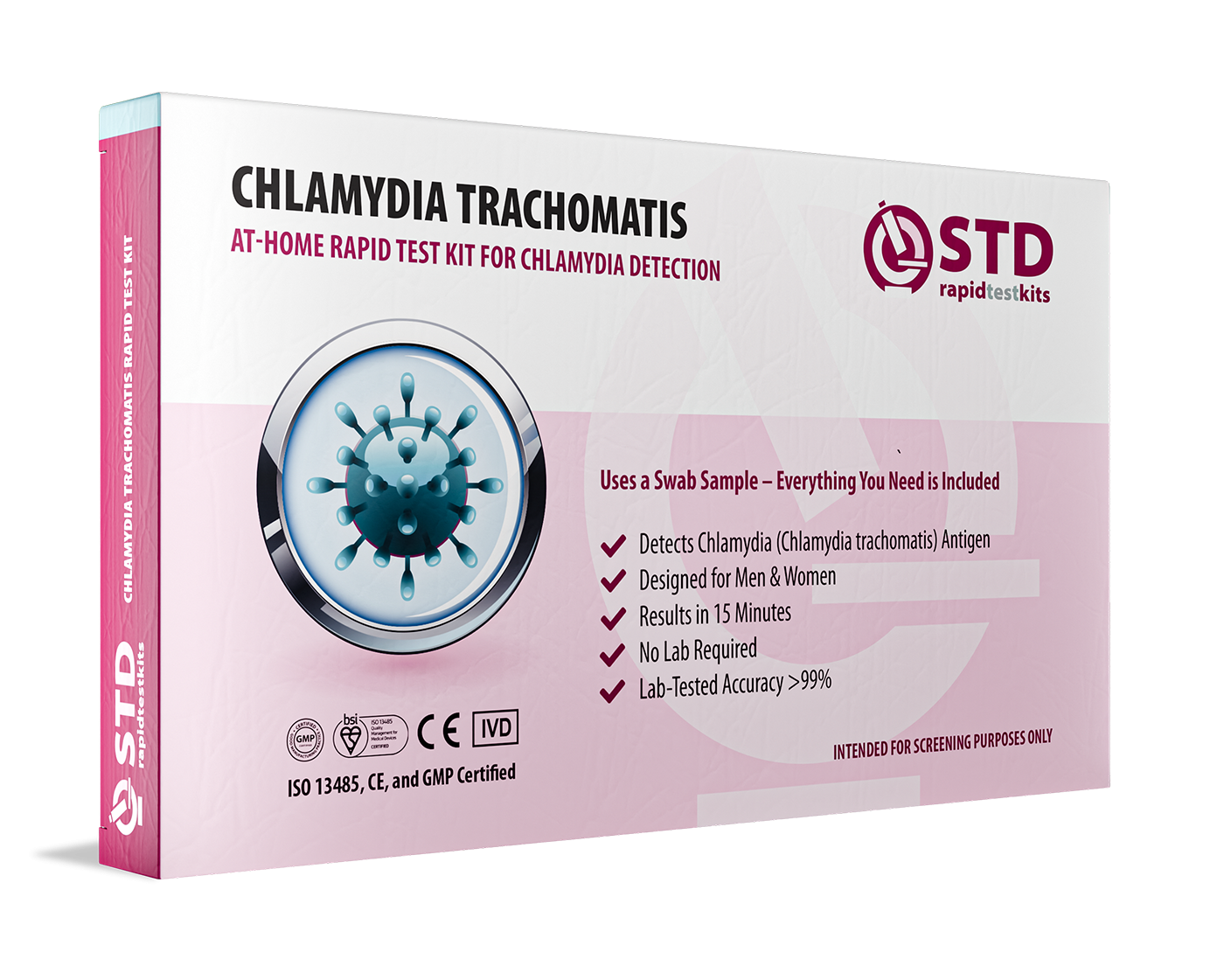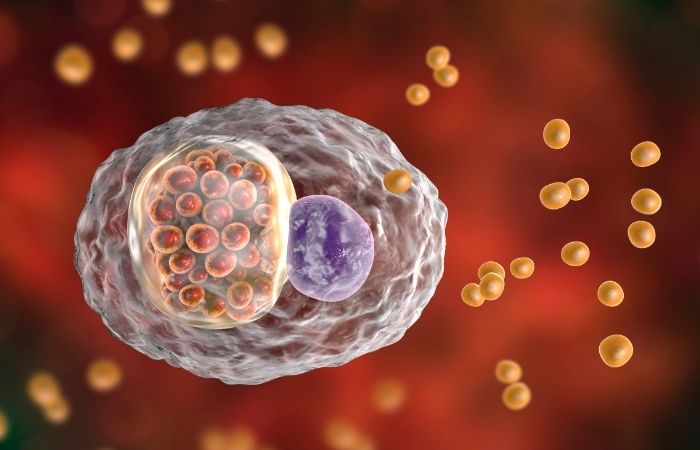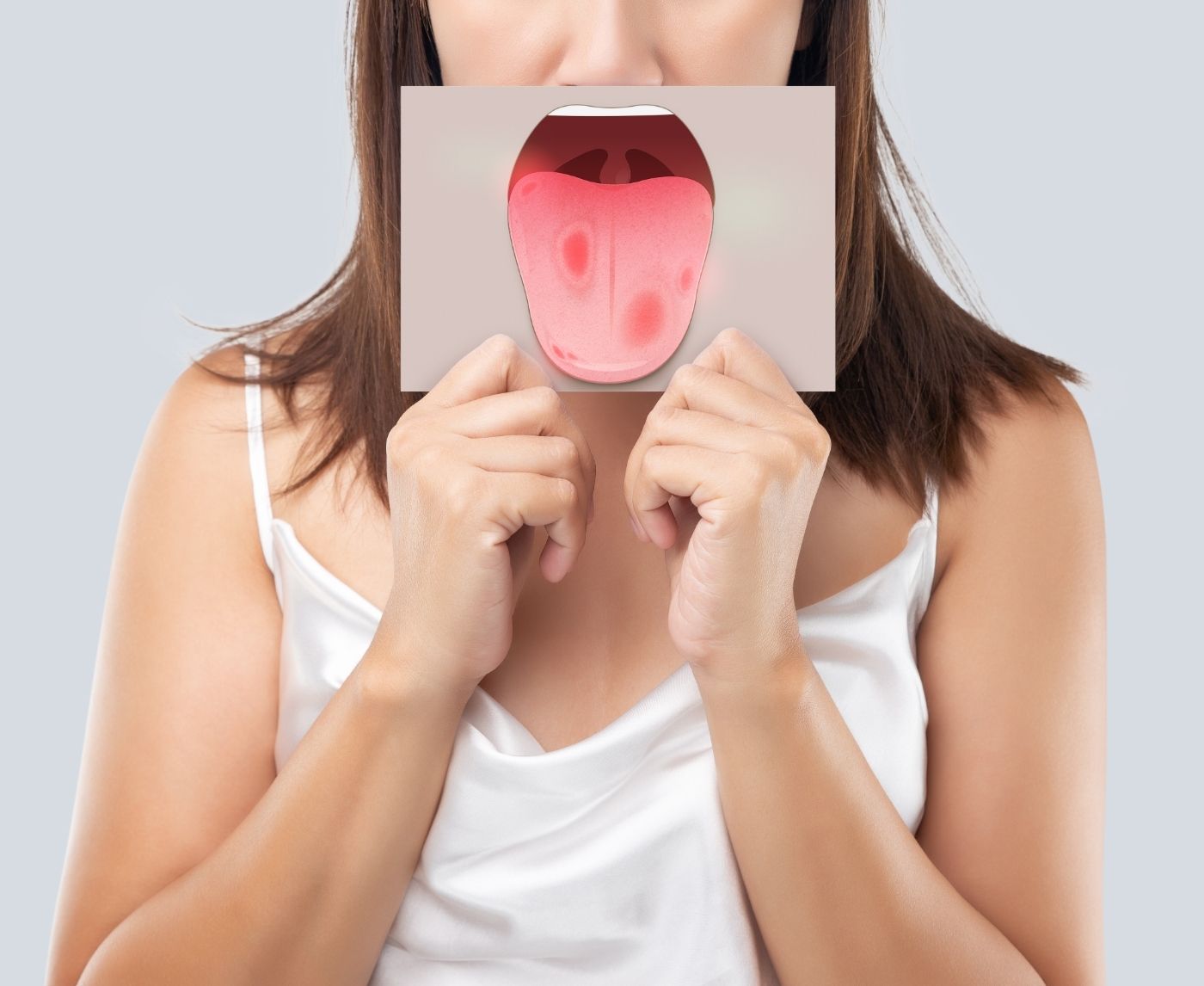Quick Answer: Testing negative for chlamydia doesn’t mean you’re clear, oral infections in the throat can go undetected if your test didn’t include that site. Ask for throat-specific testing or use an at-home kit designed for oral detection.
“I Was Negative, But Something Still Felt Off”
Marisol, 28, thought she did everything right. After a casual hookup with someone new, she went to a clinic a few days later and got a full panel. “I asked to be tested for everything,” she remembers. “They did urine and blood, and I left thinking I was good.” But two weeks later, her throat still felt raw. She wasn’t sick. She hadn’t shouted at a concert. She hadn’t smoked anything.
Eventually, she found a Reddit post where someone described the exact same symptoms: swollen tonsils, scratchy throat, mild pain when swallowing, turned out it was oral chlamydia. Marisol went back and asked directly for a throat swab. The result? Positive. “I was floored,” she said. “No one told me they don’t automatically test your mouth.”
Her experience is disturbingly common. Most people assume that an STD test covers everything, but unless you specifically request a throat (or rectal) test, many clinics and urgent care centers won’t include those. And if you’re using at-home kits? The wrong one might not detect oral infections at all.
Why Most STD Tests Skip the Mouth
Here’s what’s behind the false sense of security. Traditional testing protocols are often based on assumptions: that chlamydia and other STDs live in the genitals, and that oral sex is “lower risk.” So the default is to test urine (for people with vaginas or penises) and blood (for HIV and syphilis). Mouth? Not unless you ask.
That matters because chlamydia can live in the throat after oral sex. Studies show that throat-only infections are common, especially among people with multiple partners, queer individuals, and anyone who’s had unprotected oral contact. The CDC does recommend extragenital testing (which includes throat swabs) for at-risk populations, but that doesn’t mean all providers follow through, or that patients know to ask.
And when oral chlamydia is present, it’s often symptomless, or shows up with vague signs that mimic allergies, strep, or dry air. If you're not checking the right place, you’re not going to find it.
What Oral Chlamydia Feels Like (Or Doesn’t)
Most people with oral chlamydia feel nothing. That’s what makes it dangerous. It doesn’t burn like genital infections. It doesn’t come with a rash. But for some, the symptoms sneak in like background noise you can’t tune out.
Jason, 34, describes it like this: “It felt like I had a popcorn kernel stuck in my throat. Just this scratchy, annoying irritation. But I wasn’t sick. No mucus, no cold. After two weeks, I started Googling.” He never thought to test his throat, he assumed STDs meant discharge or burning after sex.
Here are the subtle signs that sometimes show up:
| Possible Symptom | Why It Gets Missed |
|---|---|
| Scratchy or sore throat | Blamed on allergies, dry air, or mild cold |
| Red or swollen tonsils | Looks like strep or a common virus |
| Mild pain when swallowing | Easy to ignore if not severe |
| No symptoms at all | False sense of security, especially if genitals are symptom-free |
Table 1: Symptoms of oral chlamydia are often misattributed to minor illnesses or environmental causes, especially when there are no genital symptoms.
The Problem with “Negative” Tests
When you see the word “negative” on a test result, it’s easy to breathe a sigh of relief. But if you only tested your urine or blood, and the exposure happened through oral sex, you didn’t test for everything. Negative doesn’t mean nothing is there, it means nothing was found in that sample.
This is where the problem lies: most at-home STD tests are designed to check for genital infections using urine or swabs. Unless clearly labeled for throat testing, or offering customizable collection kits, they won’t detect oral chlamydia.
To make it plain: if you gave oral sex, and your test didn’t include a throat swab, you could still be carrying chlamydia.

People are also reading: The Honeymoon Isn’t the Time to Find Out: Get Tested First
Do At-Home STD Kits Catch Oral Chlamydia?
The short answer: some do. Many don’t. It depends on what sample the test uses.
Here's a comparison to show what we mean:
| Test Type | Sample Site | Detects Oral Chlamydia? |
|---|---|---|
| Standard urine-based at-home test | Genital only | No |
| Blood test for STDs | Bloodstream (HIV, syphilis) | No |
| Customizable multi-site test kit | Throat, rectum, genitals | Yes (if throat sample is included) |
| Clinic-based NAAT with throat swab | Throat | Yes |
Table 2: Unless you use a kit or clinic that includes throat swabs, oral chlamydia may go undetected.
If you're not sure what your test covers, check the instructions, or better yet, choose a test that explicitly states multi-site detection. One solid option: this at-home combo test kit includes targeted sample collection to cover oral, rectal, and genital infections discreetly.
Testing your mouth isn’t overkill, it’s clarity.
When Timing Matters: Why Retesting Could Save You
Let’s say you gave oral sex last weekend. You felt anxious, so you ordered an at-home STD test or went to a clinic on Monday. Your results came back negative. That doesn’t necessarily mean you’re clear, especially not in the throat. Here’s why.
Chlamydia has a window period, meaning it takes time after exposure for the infection to be detectable. If you test too soon, your body might not have built up enough bacterial presence for the test to catch it. This is especially true for oral infections, where symptoms are mild or absent and where sample collection needs to be precise.
Sasha, 31, tested negative on day five after giving unprotected oral sex to a new partner. “I had a scratchy throat, but I figured it was just nerves,” she says. “When the test came back negative, I was relieved. But ten days later I felt worse, fatigue, swollen glands.” She tested again with a throat swab and got a positive result. “It made me feel like I hadn’t imagined it,” she says. “Like my body knew something was off before the test could prove it.”
So what’s the takeaway? Test too early and you risk a false negative. Wait at least 14 days after exposure to get the most accurate results, especially for oral chlamydia. If symptoms persist or worsen, retesting is your best friend, not a sign of failure.
What No One Tells You About Partner Risk
Oral chlamydia doesn’t just affect you, it affects anyone you kiss or go down on. You can pass the infection to others even if you have no symptoms and think you’re clear.
DeAndre, 26, found out he had oral chlamydia after his girlfriend tested positive genitally. “She thought I cheated. I hadn’t,” he said. “But I’d gone down on someone else before we got together. I never got tested for that because I felt fine and used condoms for sex.” What he didn’t know was that oral sex can transmit chlamydia from one person’s throat to another’s genitals. No symptoms. No warning. Just transmission.
If you’ve been with multiple partners, or you’ve given or received oral sex without a barrier, oral testing isn’t optional, it’s respectful. Even if you’re in a monogamous relationship, a past exposure could still live silently in your system and come out later. Testing isn't about guilt. It's about care.
STD Rapid Test Kits offers discreet, multi-site options that cover oral exposure without judgment. The results are yours alone to view, and the testing process happens at home on your terms. It's how trust gets rebuilt, even if you're starting with a question mark.
When It’s Not Just Strep: Sorting Out the Confusion
A sore throat can be a dozen things. Strep. Acid reflux. Allergies. Even trauma from, well, a really good night. But if it lingers, or feels different, don’t dismiss it. Oral chlamydia can overlap with a lot of other common throat issues, which is exactly why it gets missed.
Here’s how it stacks up:
| Condition | Common Symptoms | STD Testing Recommended? |
|---|---|---|
| Strep throat | Severe pain, fever, white patches on tonsils | No (bacterial throat swab only) |
| Viral sore throat | Cough, runny nose, low fever, fatigue | No (treat symptoms) |
| Oral chlamydia | Mild sore throat, swollen tonsils, often no symptoms | Yes (throat swab or oral-specific test) |
| Allergy irritation | Itchy throat, sinus congestion | No (but symptoms may overlap) |
Table 3: Distinguishing between oral chlamydia and other common throat conditions can be difficult without proper testing.
If you’re wondering whether it’s strep, allergies, or something else, ask this: Did you have oral sex recently without protection? Are you testing everything, or just what’s convenient?
Check Your STD Status in Minutes
Test at Home with RemediumChlamydia Test Kit

 For Men & Women
For Men & Women Results in Minutes
Results in Minutes No Lab Needed
No Lab Needed Private & Discreet
Private & DiscreetOrder Now $33.99 $49.00
Testing Smart: What to Ask (And What to Order)
If you go to a clinic, don’t just ask for “everything.” Be specific. Say: “I want to be tested for oral STDs, including chlamydia, using a throat swab.” If the provider pushes back or says it’s not necessary, remember this: you’re allowed to advocate for your own body. Push if you need to.
At home, choose kits that clearly state which sample types are included. If it’s just urine, that’s not enough. A solid multi-site test should include separate collection tools for oral, genital, and sometimes rectal sites. One reliable option is the Combo STD Home Test Kit, it’s discreet, accurate, and designed for people who don’t want to guess where their risk lies.
You deserve answers. Not just for peace of mind, but for your health and the health of anyone you care about.
“But I Don’t Feel Sick”: Why That Doesn’t Mean Much
This is the quiet part that needs saying louder: oral chlamydia doesn’t make you feel sick. No fever, no chills, no cough. Maybe a faint scratch or a slight burn. Maybe nothing at all. That’s why it spreads so easily, because it feels like nothing until it doesn’t.
Waiting for symptoms is like waiting for a house to catch fire before checking the wiring. Most people with chlamydia, oral or otherwise, don’t know they have it until a partner tests positive or complications appear later.
Ally, 22, never thought her hoarseness was from an STD. “I was working long shifts at a bar,” she said. “I just assumed I was yelling too much. When I lost my voice for a week, my friend said, ‘You should test for chlamydia in your throat.’ I laughed. Then I did it. And it was positive.”
She wasn’t reckless. She wasn’t dirty. She was normal, and like many others, just didn’t know.
Privacy, Stigma, and Getting Your Power Back
We get it, talking about STD testing, especially for your throat, feels loaded. You don’t want to be seen as “paranoid,” or worse, “dirty.” But let’s flip the script. Testing is ownership. It’s how you say: I care about myself. I care about others. I deserve clarity, not silence.
That’s why at-home tests are becoming the go-to for many people. No awkward questions. No waiting rooms. No wondering if your doctor judged you for asking about oral sex. Just a kit, your own hands, and results that stay private unless you choose to share them.
Shipping is discreet. Billing is neutral. And if you use a test like the Combo STD Kit, you're testing all the right places, not just the ones society talks about.
You’re not overreacting. You’re protecting your health.
What If It’s Positive? Here’s What Happens Next
Finding out you have oral chlamydia might hit you harder than expected. Not because of symptoms, but because of the shock. The shame spiral. The fear of what to say to your partner. But here’s what you need to know: this is treatable. You didn’t do anything wrong. And you’re not alone.
Marcus, 40, found out after his girlfriend tested positive. “I felt numb,” he says. “I thought I had covered all my bases. Turns out I never even thought about my mouth.” His doctor prescribed a standard antibiotic, azithromycin, and within a few days, symptoms cleared. “What I remember most,” Marcus adds, “was how my girlfriend thanked me for being honest. That meant everything.”
Here’s the standard course: oral chlamydia is treated with antibiotics, usually azithromycin or doxycycline, depending on guidelines in your country. In most cases, symptoms resolve quickly, and you’re advised to avoid sexual contact for seven days after completing treatment. If you’re prescribed meds, follow through. Don’t skip doses. Don’t stop early.
If you tested with an at-home kit, take your results to a healthcare provider. Most clinics accept home-test documentation and will guide you on the next steps. And if you feel lost in the emotional fog of a diagnosis, you’re not failing, you’re figuring it out, one step at a time.

People are also reading: Lesbian STDs 101: Myths, Symptoms, and How to Get Tested Without Being Dismissed
Retesting: When to Check Again (And Why It Matters)
Even after treatment, it’s wise to test again in 3 to 4 weeks to confirm the infection is gone, especially for oral chlamydia, which can be stubborn if treatment isn’t completed or the bacterial load was high. This is called a test of cure. Some clinics automatically recommend it; others only do so if symptoms persist.
But there’s another reason to retest: reinfection. If your partner hasn’t been treated, or if you’ve had new exposures since your last test, it’s possible to get infected again. That’s not a failure. That’s life. But knowing it means you can do something about it.
If you’re not sure whether your previous test included your throat, or if you never retested after a partner tested positive, it’s not too late. Go back. Check again. This time, do it right. Return to STD Rapid Test Kits and order a multi-site test that covers your whole body, not just the parts society says matter.
You’re Not Paranoid, You’re Proactive
There’s a quiet kind of bravery in taking charge of your health when you’re not sure what’s wrong. Especially when the symptoms are small. Especially when the first test said you were fine. Especially when everyone around you shrugs it off or doesn’t want to talk about it.
But here you are, still reading, still asking questions, still showing up for yourself. That’s not paranoia. That’s strength.
Oral chlamydia is real. It’s common. And it’s often missed by standard tests. If you’ve tested negative but your body is still telling you something’s off, listen. Get retested. Ask for a throat swab. Use an at-home kit that doesn’t cut corners.
Because peace of mind isn’t about silence. It’s about answers.
Don’t wait and wonder, get the clarity you deserve. This at-home combo test kit checks for the most common STDs discreetly and quickly.
FAQs
1. Can you have oral chlamydia without having it genitally?
Absolutely. In fact, that’s the whole point of this article. Oral chlamydia can show up in your throat, and nowhere else, especially if the only exposure was oral sex. So if you tested your genitals but skipped the mouth, you could still be carrying it without even knowing.
2. Will kissing give me oral chlamydia?
It’s not impossible, but it’s unlikely. Chlamydia doesn’t spread easily through kissing like mono or herpes might. It usually takes direct contact, like giving oral sex to someone who’s infected, to pass it on. So no, kissing your date probably isn’t the danger zone here. Going down on them without protection? That’s another story.
3. How would I even know I have it?
That’s the thing, you might not. Most people don’t get dramatic symptoms. Maybe your throat feels a little raw. Maybe you chalk it up to allergies or talking too loud at karaoke. One guy described it as “like I swallowed sandpaper but only on one side.” If you’re unsure and had unprotected oral sex, it’s worth swabbing to find out.
4. I tested negative. Am I in the clear?
Depends on what you tested. If it was just urine or blood, and you had oral sex, your throat might still be untested. That “negative” result only applies to the sample they analyzed. Think of it like checking one room in the house for smoke, doesn’t mean there’s not a fire in the basement.
5. Is oral chlamydia serious?
It’s not usually dangerous in the short term, but that doesn’t mean it’s harmless. Left untreated, you can pass it on to partners or even reinfect yourself if you clear it in one site and not the other. Plus, untreated infections contribute to antibiotic resistance, and nobody wants that future.
6. How long after oral sex should I get tested?
Give it about two weeks. That’s the window where the bacteria become detectable in most cases. Testing earlier might miss it, so if you swabbed your throat on day three and got a negative, don’t pop the champagne just yet, retest after day 14 to be sure.
7. What does treatment look like?
Simple: antibiotics. Usually a course of doxycycline or azithromycin. Most people feel better within a few days, and the infection clears fast if caught early. The key is finishing the full prescription and avoiding sex for at least a week after treatment, yes, even if you feel fine.
8. Do I have to tell my partner?
It’s up to you, but ethically, yeah, you probably should. Especially if there’s a chance they’re infected and don’t know. It doesn’t have to be dramatic. Try: “Hey, I found out I had something that’s easy to treat but easy to miss. You might want to get tested, just to be safe.” That’s honesty, not shame.
9. Can I get tested for this at home?
Totally, but read the fine print. Some kits only check urine or blood, which won’t catch oral infections. Look for multi-site kits that include a throat swab, like the combo test from STD Rapid Test Kits. It’s discreet, accurate, and actually checks the places where STDs like to hide.
10. Should I retest after treatment?
Yes, especially if it was an oral infection. A follow-up test 3 to 4 weeks later can confirm that the infection’s gone and not just playing possum. And if you're still hooking up with new partners, retesting every few months is just smart health maintenance, like getting your oil changed, but way more important.
You Deserve Answers, Not Assumptions
You followed the rules. You got tested. You trusted the process. But what if the test didn’t check the right spot? That’s not on you, that’s on a system that still treats oral sex as an afterthought.
If something still feels off, it probably is. The sore throat that lingers. The scratchiness that won’t quit. The low-grade tension in your neck that no cold medicine touches. That’s your body speaking. And now, you know how to listen.
Don’t settle for half-answers. If your test didn’t include your throat, it didn’t tell the whole story. Order a complete test kit that checks every site that matters, including your peace of mind.
How We Sourced This Article: We used current advice from top medical groups, peer-reviewed research, and reports of real-life experiences to make this guide useful, kind, and correct.
Sources
1. CDC – Chlamydia – STD Facts
2. Planned Parenthood – What Is Chlamydia?
3. Chlamydial Infections: STI Treatment Guidelines – CDC
4. About STI Risk and Oral Sex – CDC
5. Chlamydia: Symptoms & Causes
6. A Practical Approach to Diagnosis
7. Incidence and Duration of Pharyngeal Chlamydia – PMC
8. Pharyngeal Chlamydia trachomatis in MSM – Clinical Infectious Diseases
9. Chlamydia in the Throat: Causes, Symptoms, Treatments – Medical News Today
About the Author
Dr. F. David, MD is a board-certified infectious disease specialist focused on STI prevention, diagnosis, and treatment. He blends clinical precision with a no-nonsense, sex-positive approach and is committed to expanding access for readers in both urban and off-grid settings.
Reviewed by: A. Nasser, MPH | Last medically reviewed: October 2025
This article is only for informational purposes and should not be taken as medical advice.










